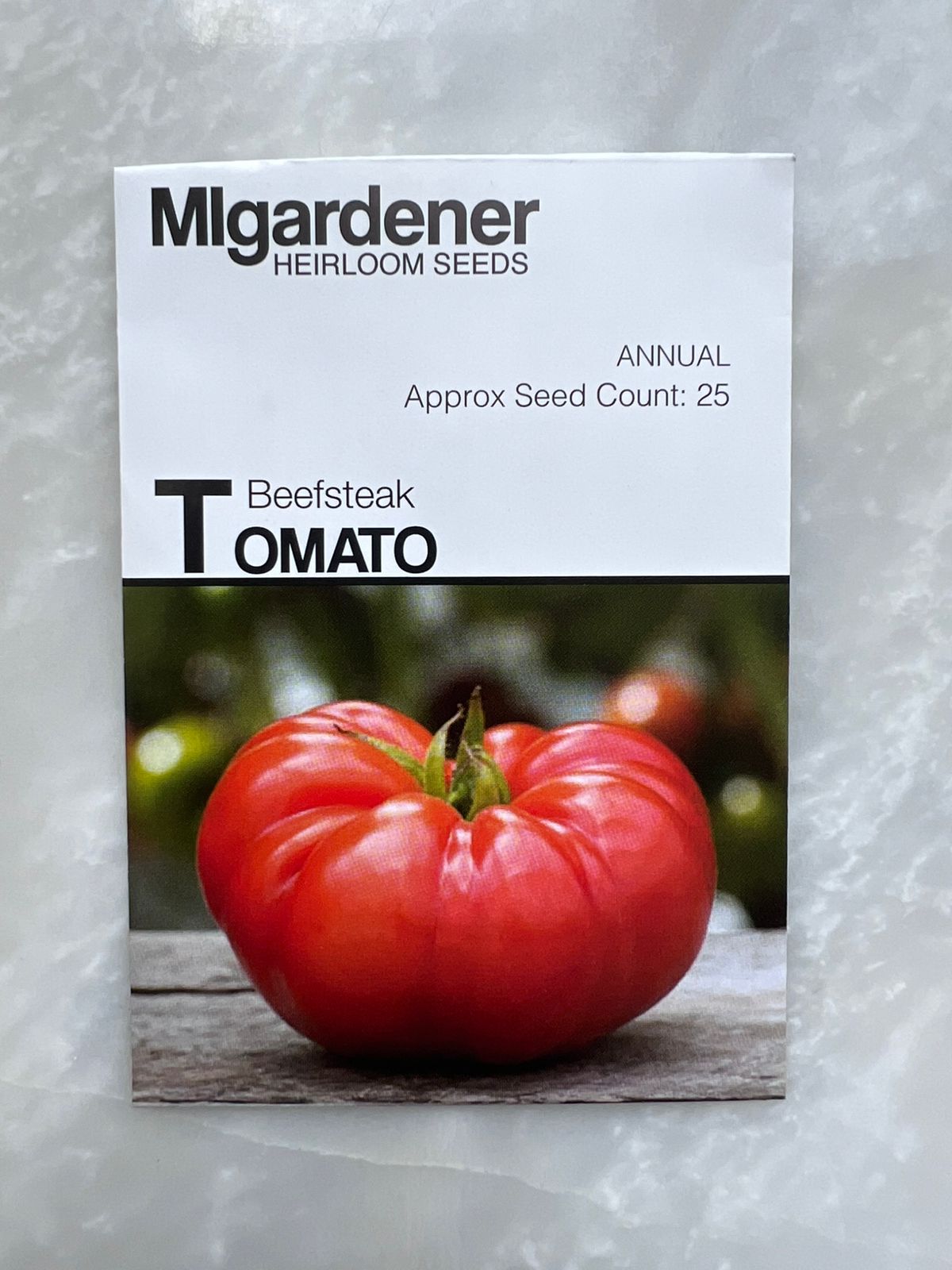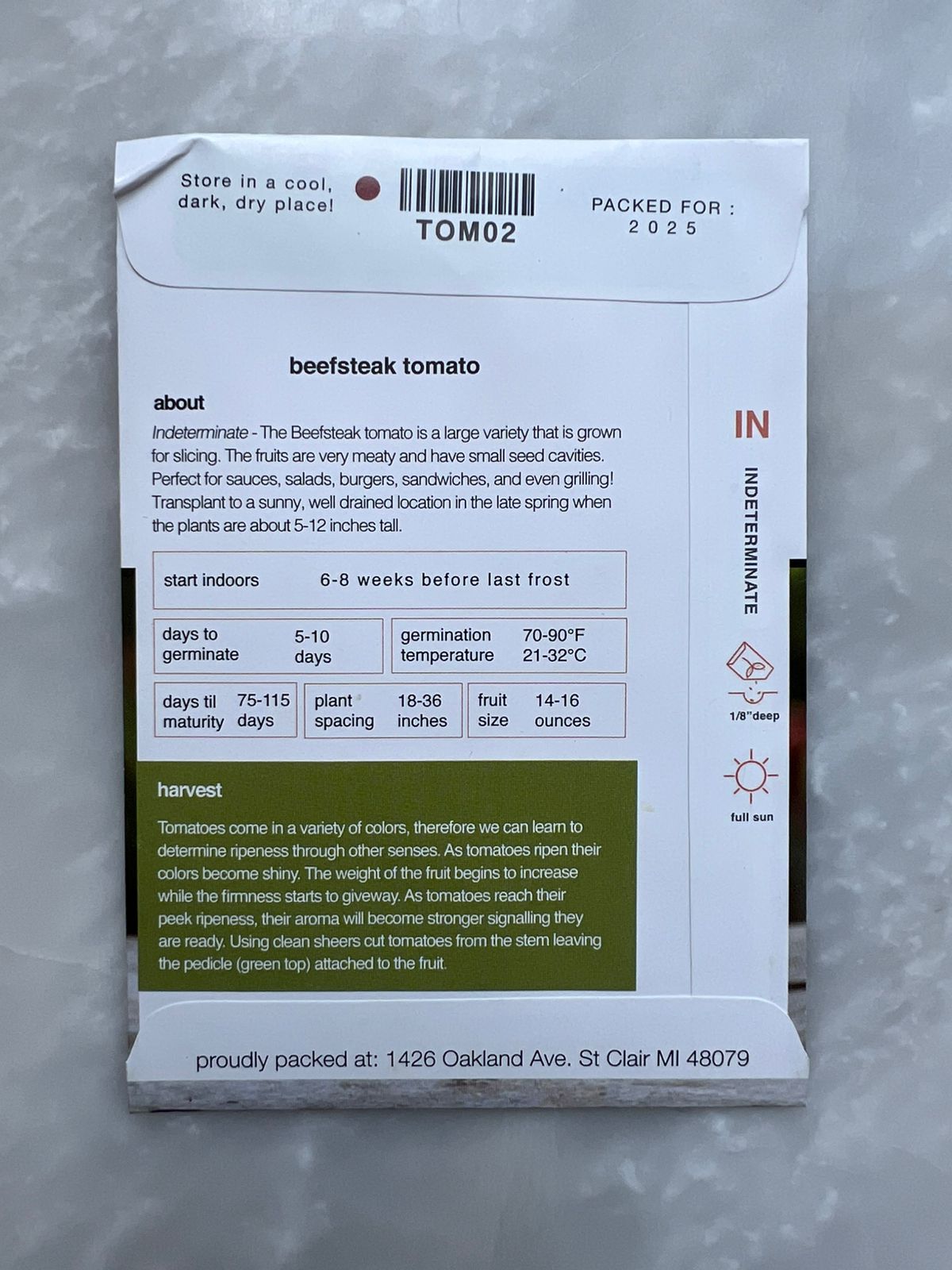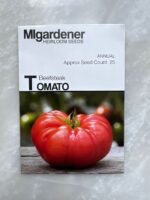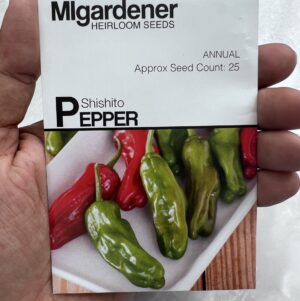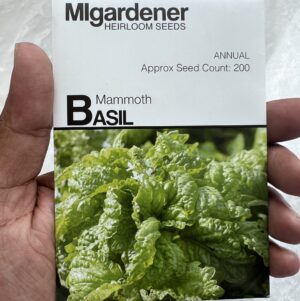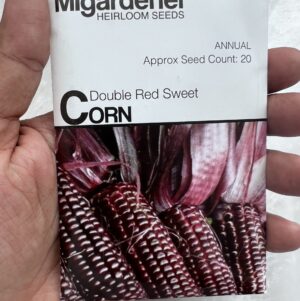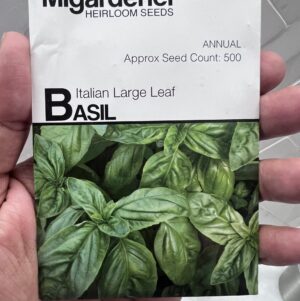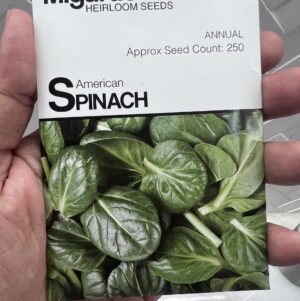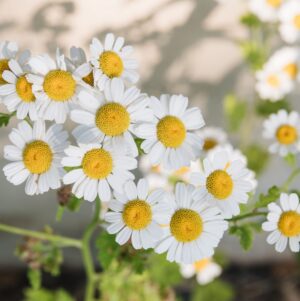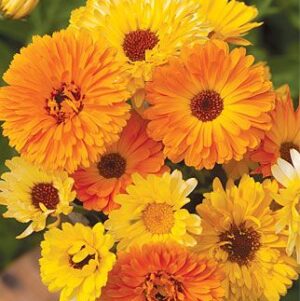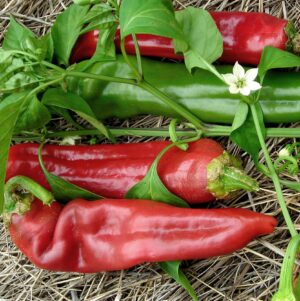- لا يمكنك إضافة هذه الكمية من "BIG JIM HOT PEPPER" لسلة مشترياتك لأن المخزون منخفض منها (0 متبقية فقط).
Beefsteak Tomato -MIg
د.إ25.00
| الوزن | 0.03 كيلوجرام |
|---|
5 متوفر في المخزون
Description
Beefsteak tomatoes are the grand darlings of slicing tomatoes—massive, juicy, and richly flavored with meaty flesh and few seeds. They typically weigh between 280–900 g (10 oz to 2 lbs). These indeterminate vines produce fruit prolifically throughout the season and require strong support to manage their weight and height.
When to Plant in the UAE
-
Start Indoors: Sow seeds early to mid-August, keeping soil temperatures at 24 °C or higher for reliable germination.
-
Transplant Outdoors: Move seedlings to the field in early October, as soon as nightly temperatures stay above 15 °C.
-
Direct Sowing (Optional): You may directly sow outdoors in early October if the soil is warm and well-prepared.
This planting window aligns well with the UAE’s fall-winter growing season, promoting strong root establishment and long harvest periods.
Growing Timeline
-
Days to Harvest: Most beefsteak varieties mature between 60–90 days after transplanting.
Tips for Planting & Care
-
Sunlight & Soil: Choose a sunny spot (6–8 hours daily) with fertile, well-draining soil, enhanced with compost or organic matter.
-
Planting Depth & Support: Plant seedlings deeply (up to first true leaves) to encourage strong roots. Support heavily with sturdy stakes or cages—these vines grow tall and bear heavy fruit.
-
Spacing: Allow 45–60 cm between plants and 90 cm between rows for optimal air flow and access.
-
Watering: Keep soil consistently moist. Deep watering helps develop strong roots; mulch conserves moisture and helps prevent cracking.
-
Fertilization: At planting, add balanced fertilizer. As the plants start flowering and setting fruit, switch to a formula higher in phosphorus and potassium, while reducing nitrogen.
-
Maintenance: Regular pruning of lower suckers can enhance fruit size and airflow. Beefsteaks are sensitive to uneven water—consistent irrigation helps prevent blossom-end rot and catfacing.



